The Dangers of Synthetic Drugs: A Broader Perspective
Synthetic drugs like Methylone, Methcathinone, Burger King MDMA, and BK MDMA are becoming increasingly popular, but with this rise comes an urgent need for awareness about the potential dangers they pose. These substances are often marketed as alternatives to well-known, legitimate drugs like MDMA, but the risks are far less understood.
For users, this means an increased likelihood of unpredictable side effects, overdose, and long-term health problems. While the initial high might seem appealing, the consequences of using synthetic drugs can be severe and irreversible.
The Unpredictability of Synthetic Stimulants
One of the biggest risks of synthetic drugs is their unpredictability. Unlike traditional, well-researched substances, synthetic drugs often come from underground labs or unregulated markets, which means that the purity and potency of these substances are often uncertain.
For instance, Methylone and other synthetic cathinones are not produced in controlled, standardized conditions. This means that the drugs could vary greatly in strength from one batch to another. What might be sold as Burger King MDMA one week could be laced with entirely different chemicals the next, making it hard for users to know exactly what they are ingesting.
Potential Side Effects
Here’s an in-depth look at some of the common side effects that users may experience when using synthetic stimulants like Methylone or BK MDMA:
- Cardiovascular Issues: Stimulants like Methylone can increase heart rate and blood pressure, potentially leading to heart attacks, strokes, or arrhythmias (irregular heartbeats), especially when combined with other substances like alcohol.
- Neurological Damage: Chronic use of synthetic stimulants can lead to neurotoxicity, causing long-term damage to the brain’s serotonin and dopamine systems. This can result in mood disorders, cognitive impairments, and emotional instability. Users might also experience memory loss or trouble concentrating over time.
- Psychiatric Effects: Increased paranoia, anxiety, and aggression are common among users of methcathinone and similar drugs. More severe effects can include psychosis and hallucinations, which can lead to dangerous behavior or long-term mental health issues.
- Addiction and Dependence: Synthetic stimulants like BK MDMA can lead to physical dependence, and users often build a tolerance over time. This results in the need for higher doses to achieve the same effect, increasing the risk of overdose.
What Do People Search for About Methylone?
Given that users are actively searching for information about Methylone, Methcathinone, Burger King MDMA, and BK MDMA, it’s important to address some of the most common search queries they may have.
What is Methylone, and What Does It Do?
Many people who come across the term Methylone are likely searching for basic information on what it is and how it affects the body. As discussed earlier, Methylone is a synthetic stimulant that is structurally similar to MDMA. Users typically seek Methylone for its ability to enhance feelings of euphoria, increase energy levels, and promote emotional openness.
However, due to its stimulant properties, it also carries a range of risks, including heightened anxiety, insomnia, and in extreme cases, overdose.
Some users are also interested in the relative safety of Methylone compared to other drugs like MDMA, so it’s essential to provide clear answers on the risks involved.
Is Methylone Legal?
Another common search query users may have is whether Methylone is legal or illegal in their area. Legal regulations surrounding synthetic drugs are constantly changing, and Methylone has been banned in many countries due to its chemical similarities to controlled substances like MDMA.
For example, in the United States, Methylone is classified as a Schedule I controlled substance, making it illegal to possess, distribute, or manufacture. However, some regions may have more lenient regulations, which is why it is crucial for users to check local laws before acquiring or using Methylone.
Can Methylone Be Used Safely?
While it’s essential to note that no drug, including Methylone, can be deemed “safe,” some users may wonder about harm reduction techniques. Harm reduction strategies are designed to minimize the negative consequences associated with drug use. For Methylone, harm reduction measures include:
- Testing the substance: Using reagent test kits to verify the contents of any substance before consuming it can reduce the risk of ingesting something dangerous.
- Moderation: Using smaller doses and waiting between doses to assess the body’s response can help minimize harmful effects.
- Stay Hydrated: Many stimulant users neglect hydration, which can lead to dehydration, heatstroke, or other complications. Drinking water at regular intervals is essential.
However, these measures can never guarantee safety, and the best option is always to avoid using synthetic drugs like Methylone entirely.
The Social and Psychological Aspects of Synthetic Drug Use
In addition to the physical dangers of synthetic drugs like Methylone and BK MDMA, there are significant social and psychological consequences to consider. The environment in which a person uses these substances—whether at parties, clubs, or social gatherings—can greatly influence their experience.
Peer Pressure and Social Acceptance
Synthetic drugs often become part of party or rave culture, where they are used to enhance social interactions and dancing experiences. In many cases, people may feel pressured by peers to try Methylone or similar drugs, especially if others around them are engaging in substance use.
This social aspect of drug use can create a false sense of safety and normalcy, as individuals may not fully understand the dangers involved. The availability of substances like Burger King MDMA in the street market, marketed as a “cheaper alternative” to MDMA, may further contribute to the idea that these drugs are harmless or more socially acceptable.
Psychological Toll of Synthetic Drugs
Using synthetic drugs like Methylone or BK MDMA can have lasting psychological effects. Though these substances may initially provide feelings of euphoria, the subsequent crash can be significant. Users may experience:
- Depression: As the serotonin levels in the brain are depleted after the initial high, users often report feeling down, anxious, or irritable.
- Emotional Instability: Synthetic stimulants can alter mood regulation, leading to extreme mood swings or heightened sensitivity to external events.
- Addiction: Due to the way synthetic stimulants affect the brain’s reward system, regular use can lead to addiction, where individuals become dependent on the drug to feel “normal” or emotionally stable.
The psychological toll can be particularly severe for young people or those already vulnerable to mental health disorders. Understanding these impacts is crucial in preventing the negative effects of synthetic drug use.
What’s the Future of Synthetic Drugs?
As technology and chemistry continue to advance, it’s likely that the landscape of synthetic drugs will continue to evolve. Manufacturers are constantly creating new compounds to mimic the effects of traditional drugs like MDMA while avoiding legal restrictions. This means that Methylone, Methcathinone, and other synthetic drugs will remain a concern for public health and safety.
Prevention and Education
The future of synthetic drug use will depend on public awareness, better regulation, and harm-reduction initiatives. As education about these substances spreads, people will hopefully make more informed choices. Public health campaigns, school programs, and awareness initiatives can help inform younger generations about the risks of synthetic drugs.
Additionally, stronger regulations and international cooperation will be essential in curbing the illegal production and distribution of these substances. Governments, law enforcement agencies, and healthcare providers must continue working together to address the ever-evolving world of synthetic drugs.
Conclusion: The Importance of Informed Decision-Making
The use of Methylone, Methcathinone, Burger King MDMA, and BK MDMA presents a complex issue with no simple answers. For users, the best way to navigate the dangers of synthetic drugs is through informed decision-making, education, and harm-reduction strategies. These substances carry serious health risks, including addiction, overdose, and lasting mental and physical damage.
By focusing on harm reduction, increasing awareness, and advocating for better regulation and research, we can begin to mitigate the risks associated with these drugs. If you or someone you know is struggling with synthetic drug use, seeking help from healthcare professionals or addiction counselors is crucial.
Remember: no drug is entirely safe, and synthetic drugs can have unpredictable and potentially dangerous effects. Being proactive about understanding the risks is the first step in protecting yourself and others from the harm that can arise from synthetic drug use.
Frequently Asked Questions (FAQ)
1. What is Methylone, and what does it do?
Methylone is a synthetic stimulant that is chemically similar to MDMA (ecstasy) and methamphetamine. It is often used for its euphoric and stimulant effects, including increased energy, emotional openness, and heightened sensory perception. However, Methylone can also cause side effects like anxiety, increased heart rate, and even psychosis in some cases.
2. Is Methylone legal?
The legality of Methylone depends on where you are located. In many countries, including the United States, Methylone is classified as a Schedule I controlled substance, meaning it is illegal to possess, distribute, or manufacture. However, the legal status of synthetic drugs can vary, and it’s important to check your local laws before attempting to buy or use them.
3. What are the dangers of using Methylone?
Using Methylone can lead to a range of dangerous side effects, including severe anxiety, paranoia, cardiovascular issues (such as increased heart rate and blood pressure), and long-term mental health problems like depression and psychosis. Repeated use can also lead to addiction and physical dependence.
4. How does Methylone compare to MDMA?
While Methylone and MDMA are both stimulant drugs with empathogenic effects, Methylone is often considered a “cheaper” alternative to MDMA. Methylone tends to be more stimulating and has a shorter duration of action compared to MDMA. The effects can also vary, and Methylone has been reported to cause more intense side effects like jitteriness or aggression in some users.
5. What is the difference between Methylone and Methcathinone?
Both Methylone and Methcathinone belong to the substituted cathinone class of synthetic drugs, but Methylone is chemically closer to MDMA, while Methcathinone has more similarities to methamphetamine. Methcathinone is often associated with higher risks of addiction, aggression, and psychosis.
6. Can Methylone be used safely?
While some users engage in harm-reduction practices, it is important to recognize that Methylone and similar synthetic drugs are never truly “safe.” The risks of addiction, overdose, and mental health issues far outweigh any potential benefits. If you are considering using Methylone, be aware of the significant risks to your physical and mental health.
7. Is “Burger King MDMA” a real drug?
Burger King MDMA is not a legitimate form of MDMA. It is a street name used to describe low-quality or synthetic substitutes for MDMA, often containing substances like Methylone or other synthetic cathinones. These substances can produce unpredictable effects and carry significant risks.
People Also Ask
1. What is BK MDMA?
BK MDMA is another street name for Methylone, a synthetic stimulant that is chemically similar to MDMA (ecstasy). The “BK” refers to the β-Keto group in Methylone’s chemical structure. It’s often marketed as an MDMA substitute, but it has a different profile, causing more stimulating and less empathogenic effects.
2. Is Methylone addictive?
Yes, Methylone can be addictive. Due to its stimulant properties, it can trigger the brain’s reward system, leading to feelings of euphoria and reinforcing the desire to use it repeatedly. Over time, this can result in tolerance, physical dependence, and addiction. The risk of developing an addiction is particularly high when Methylone is used regularly or in large quantities.
3. What are the symptoms of Methylone overdose?
Symptoms of a Methylone overdose may include:
- Extreme agitation or anxiety
- Severe heart palpitations
- Confusion or hallucinations
- High blood pressure or increased body temperature
- Seizures
If someone experiences these symptoms after taking Methylone, it is crucial to seek medical attention immediately.
4. What does Methylone feel like?
Users report that Methylone produces a mix of stimulant and empathogenic effects. People often feel euphoric, energetic, and more socially open. However, the drug can also cause physical side effects such as increased heart rate, jaw clenching, and sweating.
Unlike MDMA, which has a more prolonged, relaxing effect, Methylone tends to have a shorter duration and can lead to a “comedown” characterized by feelings of anxiety and depression.
Related Searches
1. What is methcathinone?
Methcathinone is a synthetic stimulant that shares similarities with Methylone and other synthetic cathinones. Methcathinone acts as a stimulant and can cause intense feelings of euphoria and increased energy. However, it also carries serious health risks, including addiction, psychosis, and cardiovascular issues.
2. What is MDMA, and how is it different from Methylone?
MDMA (3,4-methylenedioxymethamphetamine) is a well-known empathogen and stimulant, often associated with the party drug ecstasy. While both MDMA and Methylone produce similar effects like euphoria, emotional openness, and energy, Methylone tends to be more stimulating, and its effects tend to be shorter-lived compared to MDMA.WE HAVE OTHER RELATED PRODUCT SUCH AS Peyote cactus, Magic mushrooms,5 meo dmt , nn dmt, Ecstasy Pills
3. What is the difference between Methylone and MDMA?
Although Methylone and MDMA both have stimulant and empathogenic properties, Methylone is chemically closer to methamphetamine, while MDMA is more similar to the structure of Methylone. Users often report that Methylone has more stimulating effects and a quicker onset and comedown, while MDMA is often associated with more prolonged feelings of joy and connection.
4. Is it safe to mix Methylone with alcohol?
Mixing Methylone with alcohol is strongly discouraged due to the compounded strain it can put on the heart and other organs. Both substances can cause dehydration, elevate body temperature, and increase heart rate. When used together, the effects can be unpredictable and dangerous, increasing the risk of overdose or other serious health complications.
5. How do I know if I am using Methylone?
If you are concerned that you may be using Methylone, you can use reagent test kits that check for the presence of certain chemicals. However, because Methylone is often sold in powder form or as part of a mixture, it’s difficult to know the exact contents without proper testing. Be cautious when purchasing substances from unregulated or illegal sources.
Conclusion: Empowering Yourself With Knowledge
Understanding synthetic drugs like Methylone, Methcathinone, BK MDMA, and Burger King MDMA is crucial for making informed decisions about drug use. While these substances may promise similar effects to MDMA or other more well-known drugs, their risks are often severe and unpredictable.
It’s essential to be aware of the potential dangers, including addiction, physical harm, and long-term mental health issues. If you or someone you know is using synthetic drugs, it’s important to seek guidance from healthcare professionals, engage in harm-reduction strategies, and stay informed about the latest research and legal developments.
By staying educated, you can protect yourself and others from the harmful effects of synthetic drugs and make better decisions for your well-being.

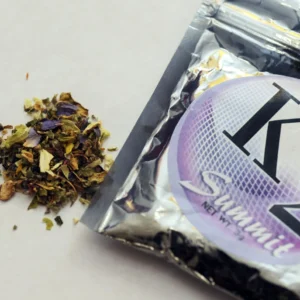
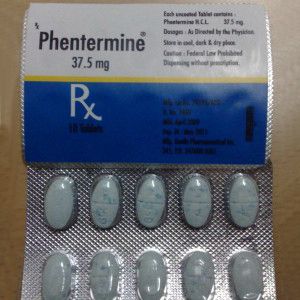
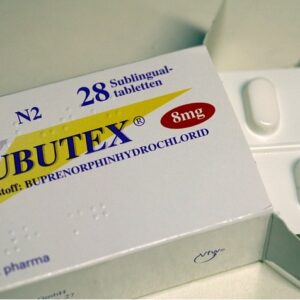
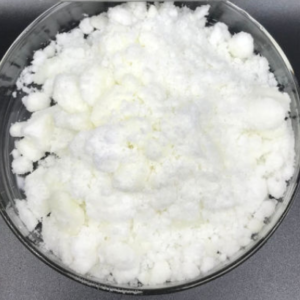
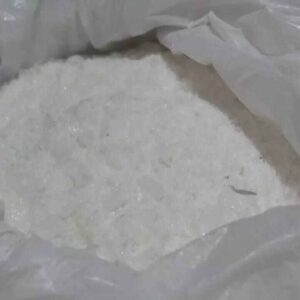


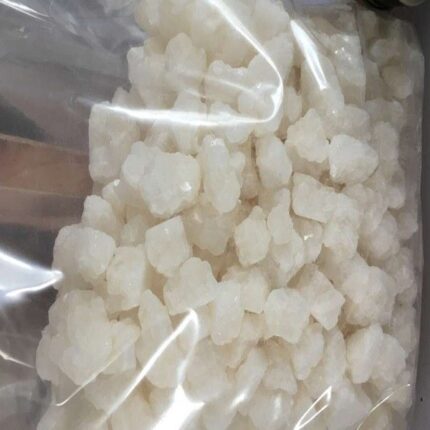

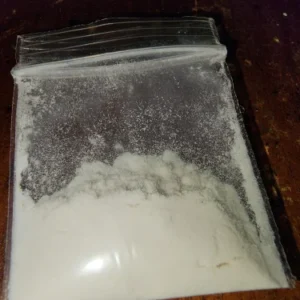
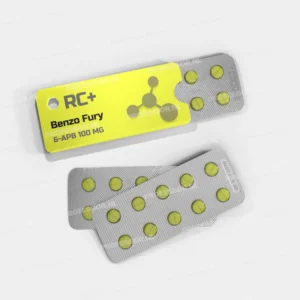
Reviews
There are no reviews yet.